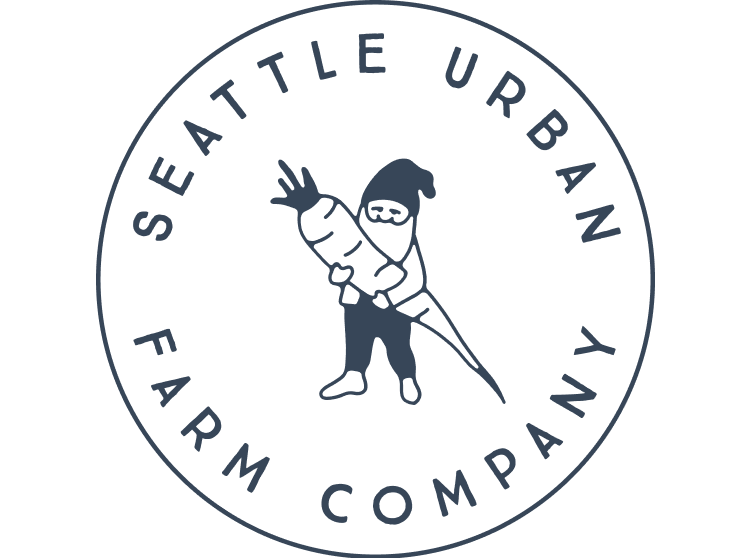Onions and leeks are always the first transplants we seed each year at Seattle Urban Farm Co. (SUFCo). Bulbing onions and leeks have a long growing season, so getting them started early allows for them to grow to maturity in the optimal growing conditions of summer. Around here, that means the seeds need to be started in mid-late January. Another reason you want to get your onions started early is that they'll cure better and store longer when harvested during dry weather conditions. Once your onions are harvested and cured in the mid-summer, you've opened up space just in time for fall crops and are able to get a second harvest from the area of your garden that was planted in alliums for so much of the season.
Onions come in all shapes, sizes and colors. There are hundreds of different onion varieties, each suited for specific climates, day lengths and culinary uses. The main advantage to starting any crop from seed is that you have a much larger selection of varieties to choose from. Now, with that said, over the last few years nurseries around the Seattle area have really stepped up their organic vegetable transplant game, so if you finish this article and decide starting your own seeds just isn’t for you, you won’t totally be out of luck! You can just wait until later in the spring and go pick up a few pots of healthy, young transplants. If you live in an area where vegetable transplants are harder to come by or if you love starting seeds as much as we do, the following instructions are definitely for you!
What you’ll need:
Germination soil mix (available at any nursery or garden center)
Fine, granulated balanced organic fertilizer (1/8th cup per gallon of soil)
Clean 4” plastic pots (you can wash and re-use the ones you bought your transplants in last year)
Seeds
Water
Warm spot by a window
How to do it:
Dampen the germination mix with water evenly throughout soil mixture
Fill 4” pots about ¾ of the way with germination mix
Add 1 Tbs balanced fertilizer to each 4” pot, and mix
Dampen the soil mix and then gently tamp it down using the bottom of another 4” pot
Sprinkle seeds on top of soil at a rate of about 5 seeds/inch
Cover the seeds with ⅛” of germination mix, then water
Label varieties
Place on a sunny window-sill or table and keep seeds moist
Seeds should germinate in 1-2 weeks.
Once seeds have reached about 2 inches in height, give them a little “hair cut” by trimming the tops about ½ inch down. This will actually encourage more growth and that growth will be more robust. While in their pots, you can trim the tops again every couple of weeks to keep encouraging the plants to put energy into the roots.
Transplant into your garden in mid-late April.
Want a little help getting your transplants started this season? Join us for our talk on Home Plant Propagation at the 2016 Northwest Flower & Garden Show, February 18-21st; or check out our new book, High-Yield Vegetable Gardening!




